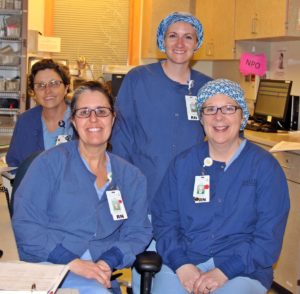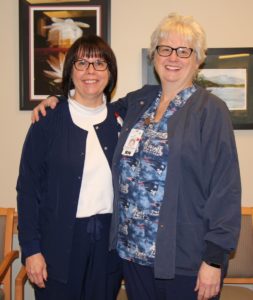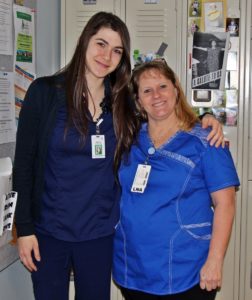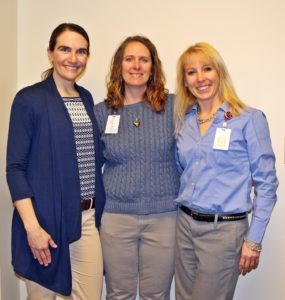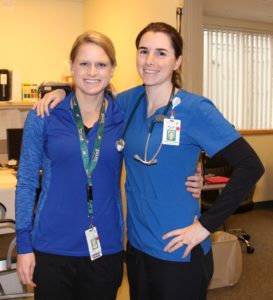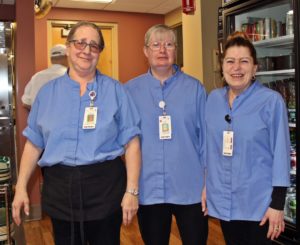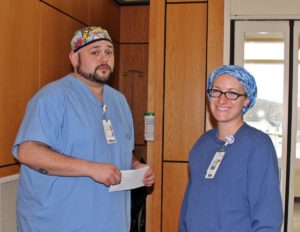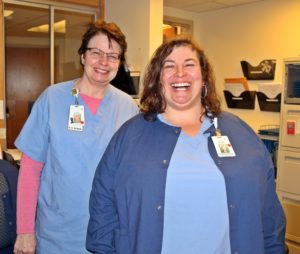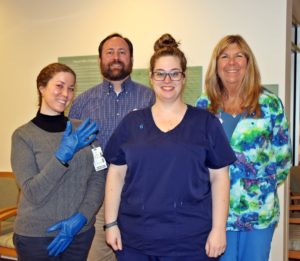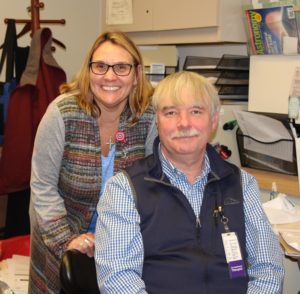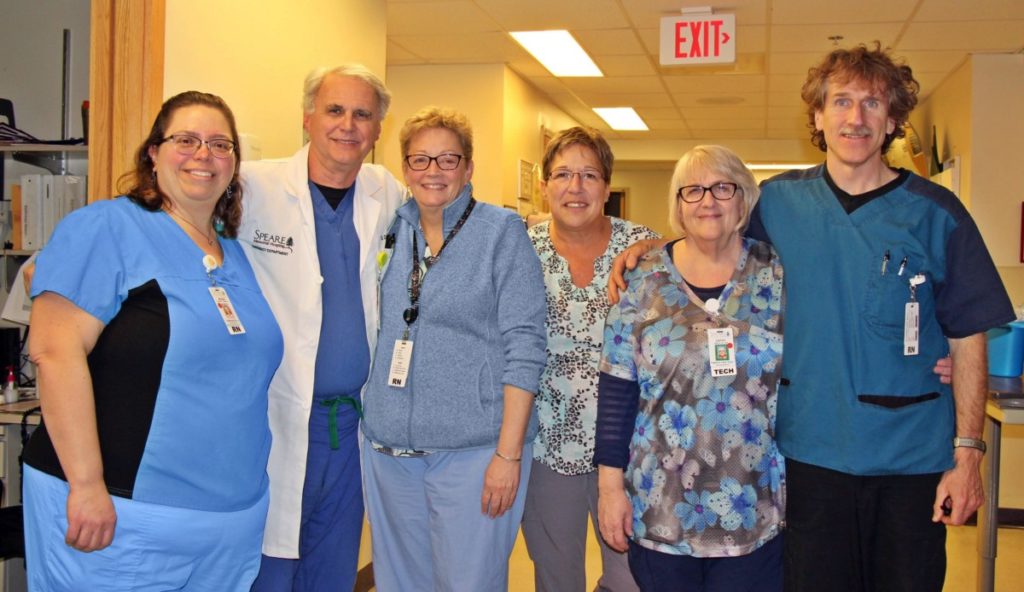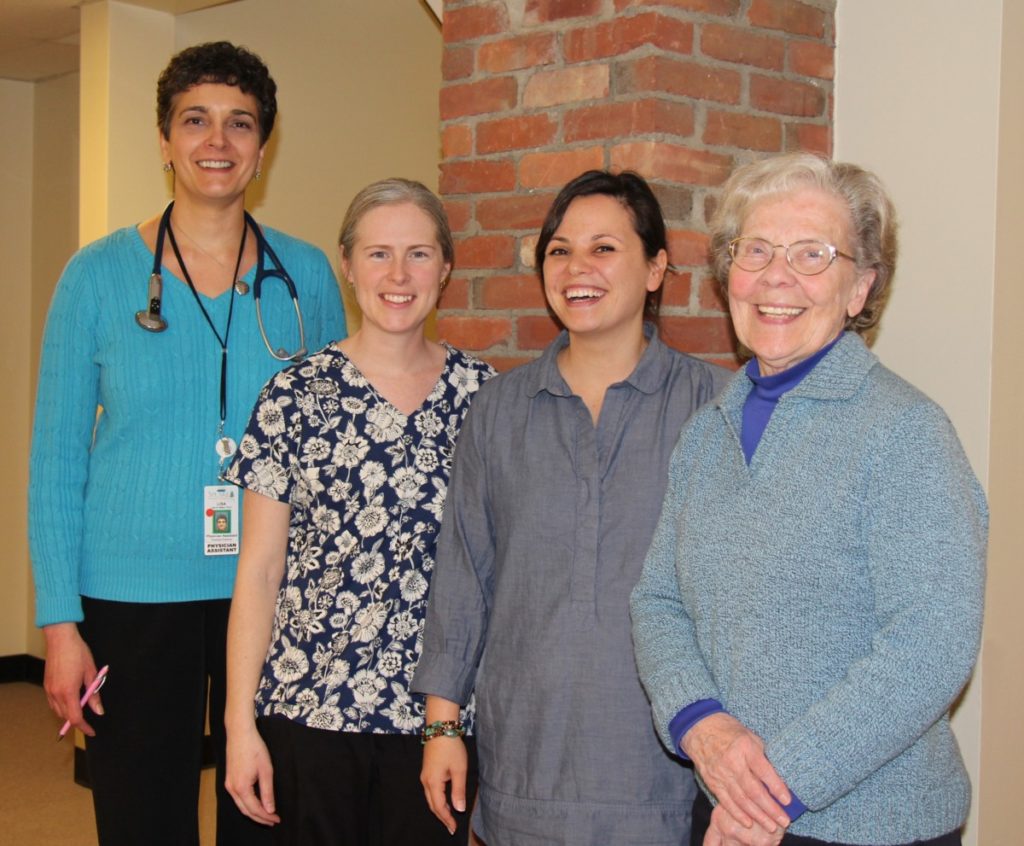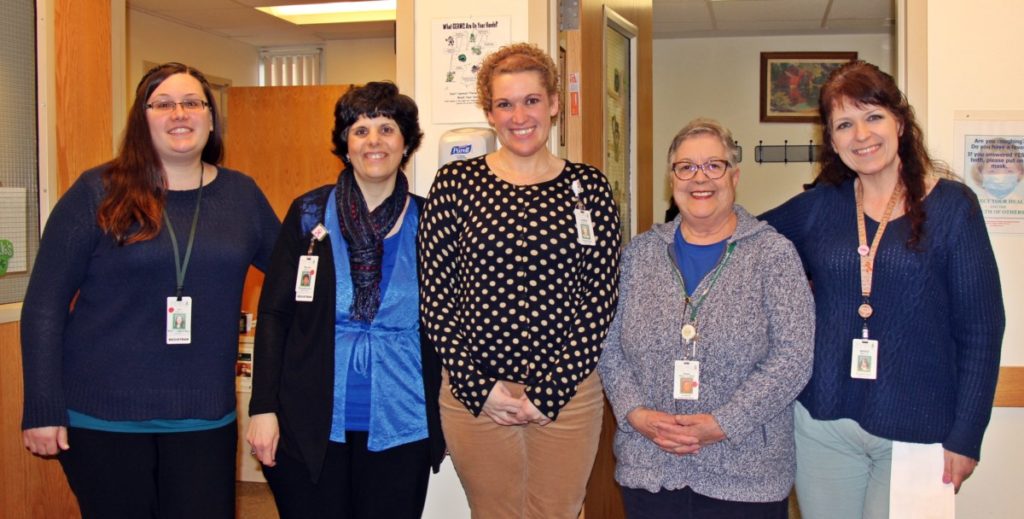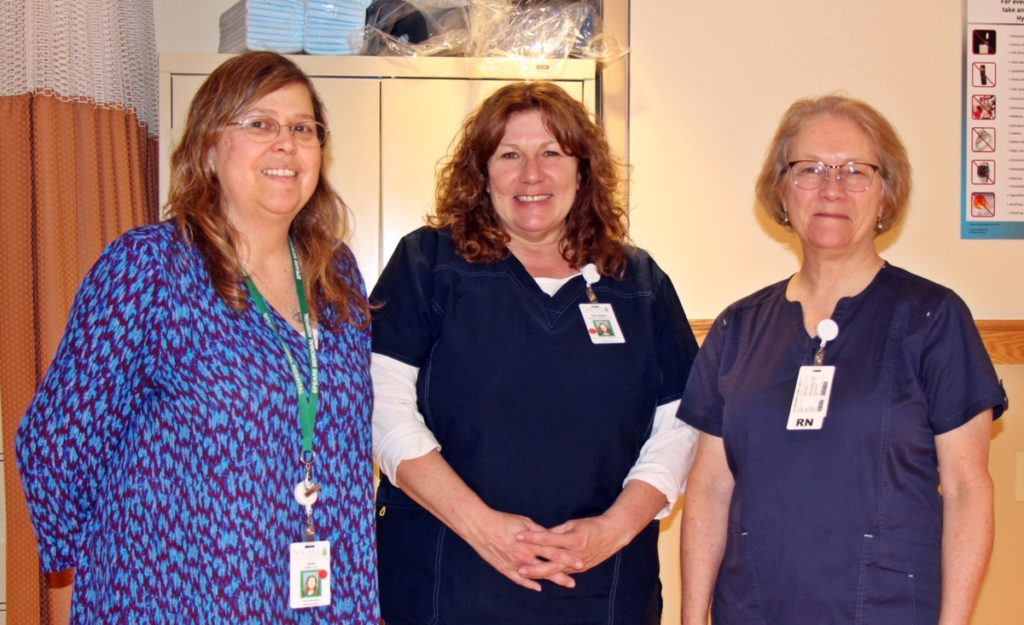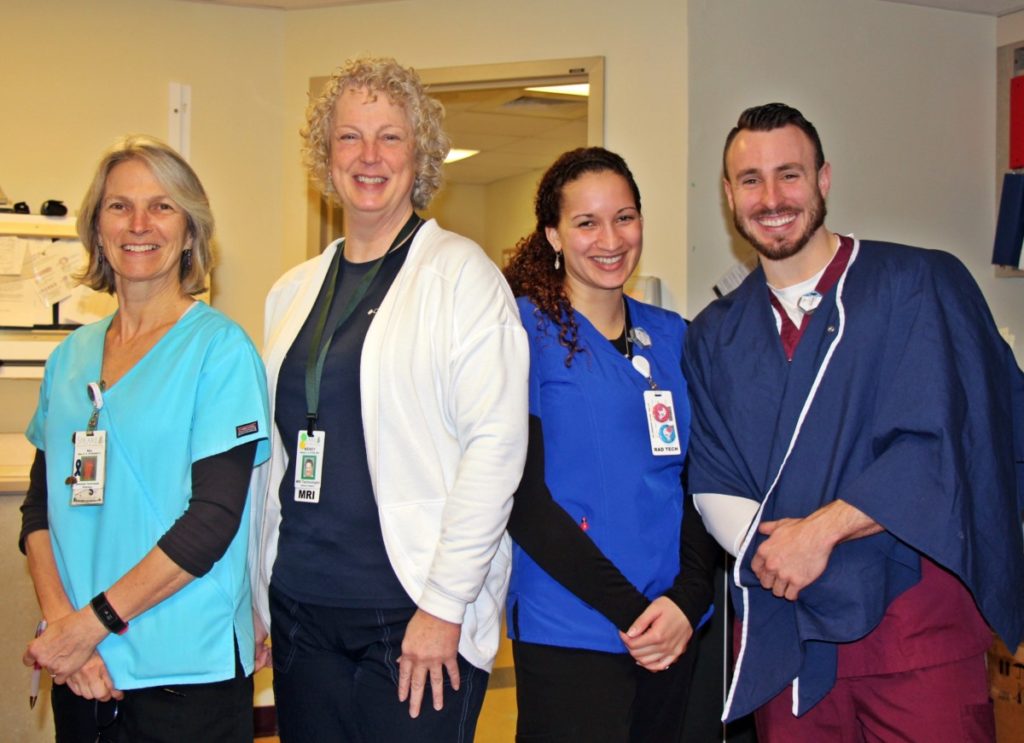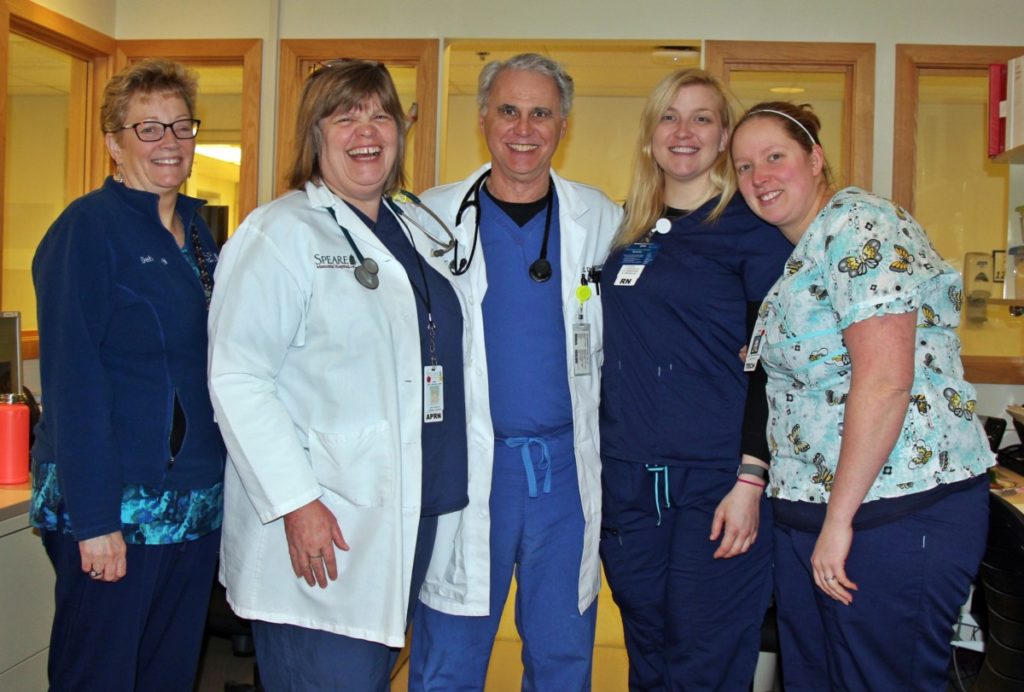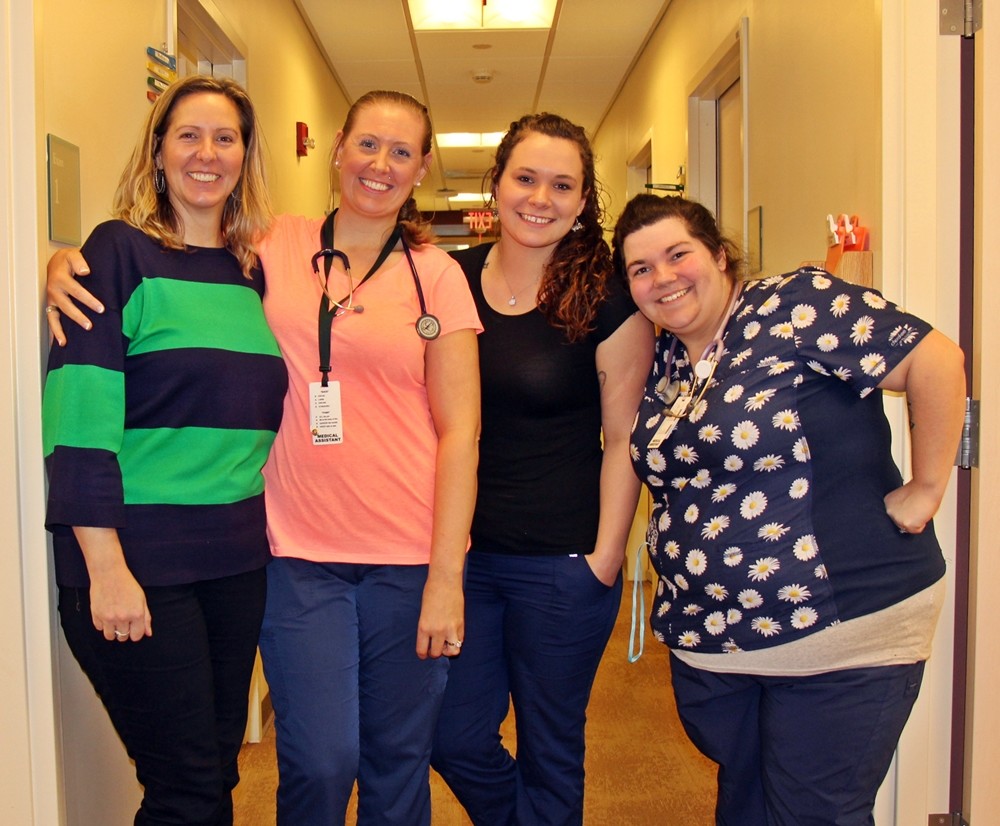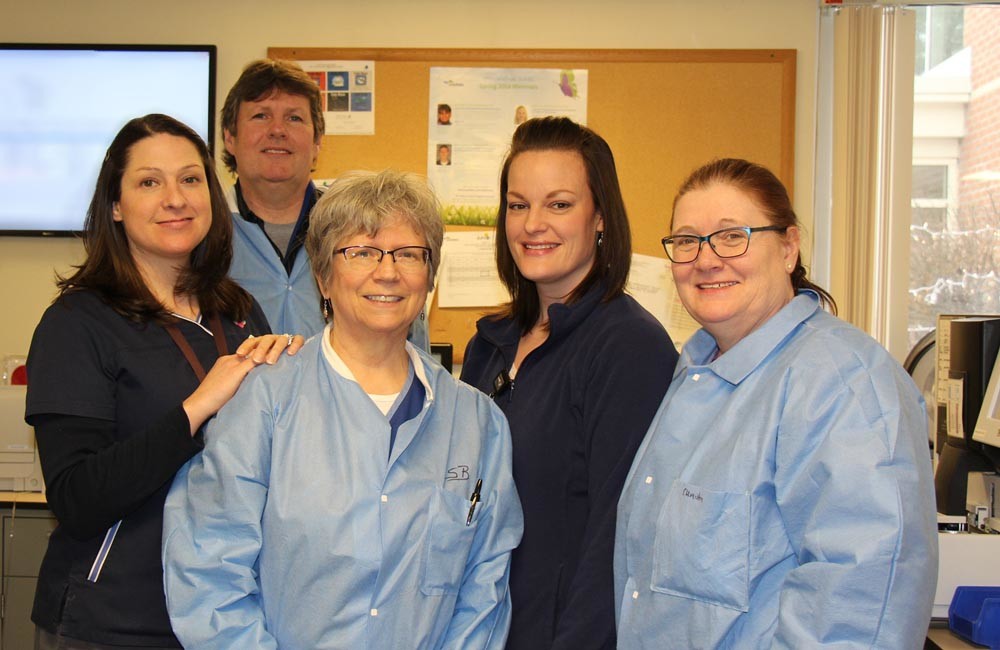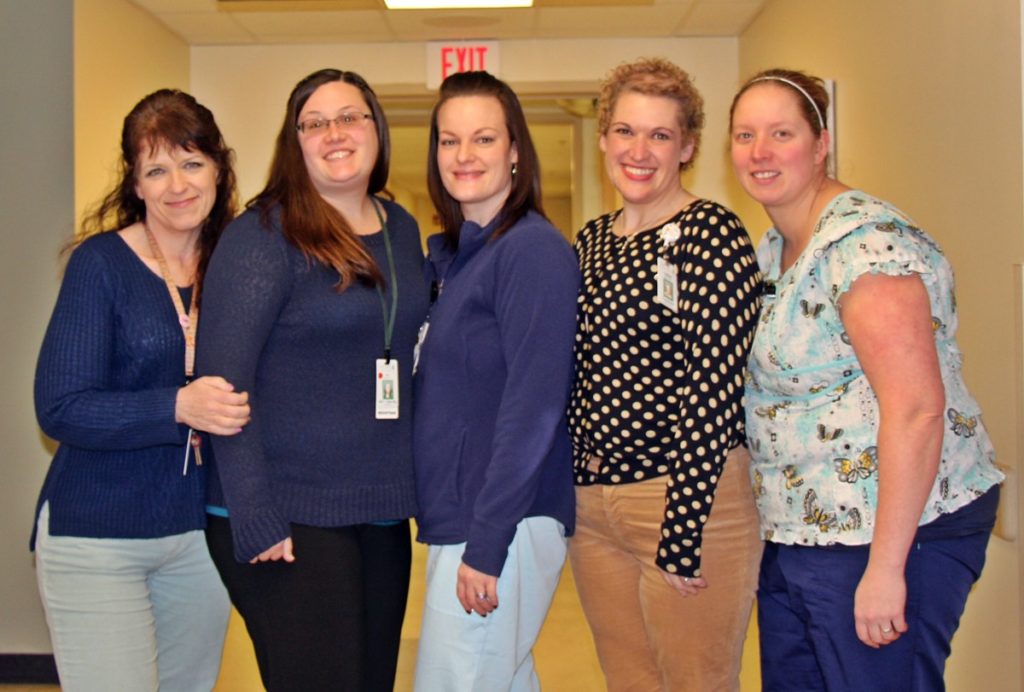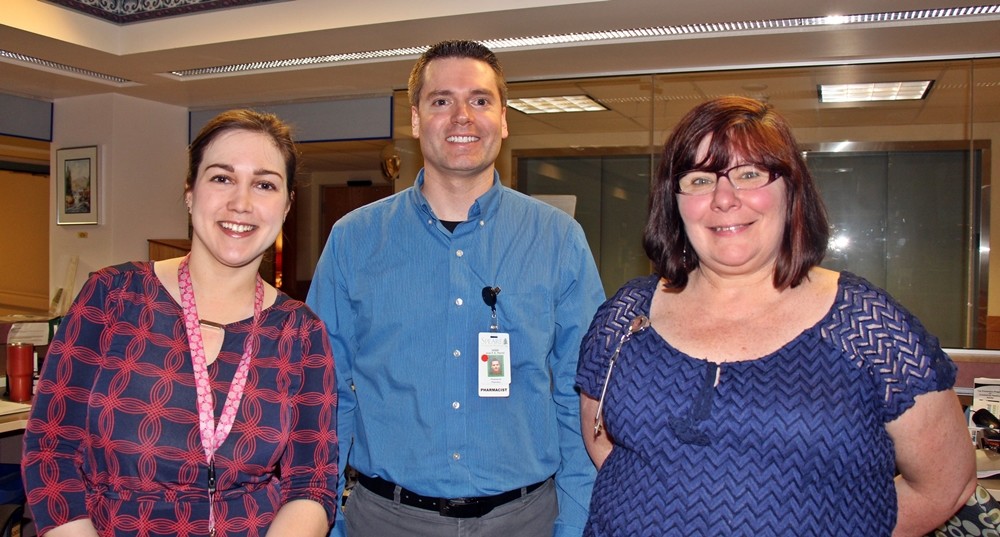Latest News
Fight the Flu – Flu Vaccines Available
Speare Expands Breast Cancer Education During Awareness Month
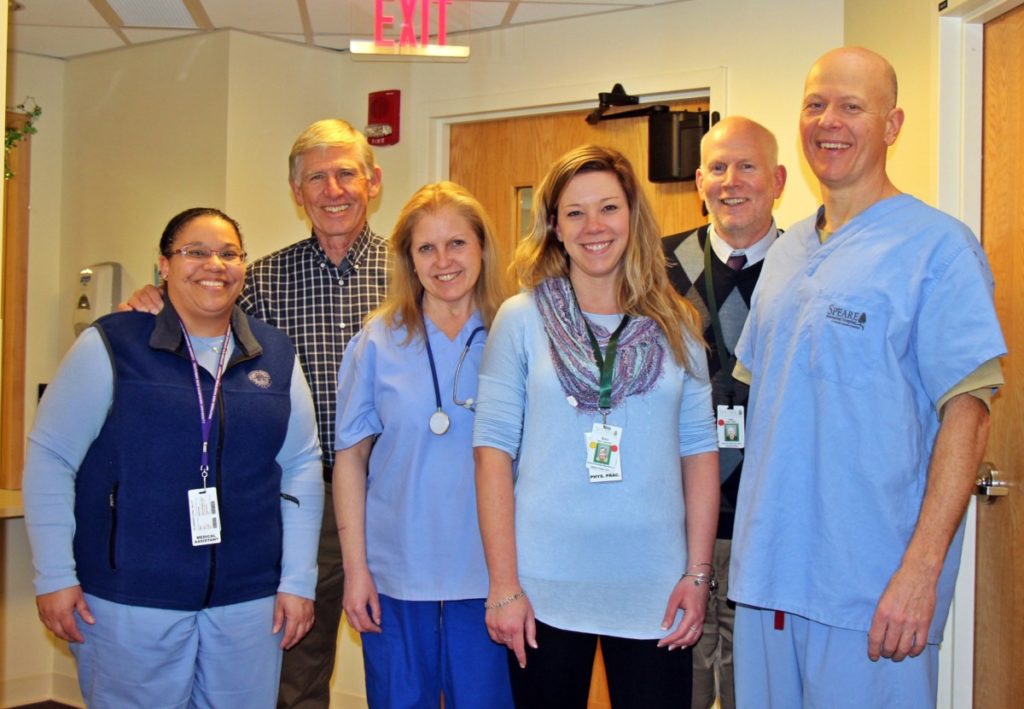 National Dress in Blue Day is celebrated each year on the first Friday of March. The Colon Cancer Alliance first launched the National Dress in Blue Day program in 2009 to bring national attention to colon cancer and to celebrate the courage of those affected by this disease.
National Dress in Blue Day is celebrated each year on the first Friday of March. The Colon Cancer Alliance first launched the National Dress in Blue Day program in 2009 to bring national attention to colon cancer and to celebrate the courage of those affected by this disease.
Several members of Speare’s staff participated in National Dress in Blue Day (scroll down to see the photos) by wearing blue to help raise public awareness and educate people on the facts about colon cancer and how they can reduce their risk of the disease.
The Number One way you can reduce your risk of colon cancer: SCREENING
Despite its high incidence, colon cancer is unique in that it is one of the most preventable and, if found early, most treatable forms of cancer. And the best part is, screening is easy! Talk to your doctor about getting checked. Make your appointment for a colonoscopy at Plymouth General Surgery today. Call 603-536-5670 and take advantage of the peace of mind that comes with knowing you have received the most advanced colon cancer and colon polyp screening available in the state of New Hampshire with FUSE, a groundbreaking technology that allows our surgeons to see twice as much of the colon as they could before.
RISK FACTORS
Research has shown people with certain risk factors are more likely than others to develop colorectal cancer. Although no one knows the exact cause of colorectal cancer, we do know this disease is not contagious.
Pay particular attention to these factors that may increase your risk:
Age over 50:
Colorectal cancer becomes more common as people get older. In fact, more than 90% of people with this disease are diagnosed after age 50. The average age at diagnosis is 72.
Family history of polyps:
If you or a family member has a history of polyps, you should be screened more frequently as this puts you at a higher risk for colorectal cancer.
Family history of colorectal cancer:
First degree relatives (parents, brothers, sisters or children) of a person with a history of colorectal cancer are more likely to develop this disease, especially if the relative was diagnosed at a young age. If many close relatives have a history of colorectal cancer, the risk is even greater.
Genetic alterations:
Changes in certain genes increase the risk of colorectal cancer.
Hereditary nonpolyposis colon cancer (HNPCC):
also called Lynch Syndrome, this is the most common type of inherited colon cancer. It accounts for about two percent of all colon cancer cases. It is caused by changes in an HNPCC gene. Most people with an altered HNPCC gene will develop colon cancer, and the average age at diagnosis is 44.
Familial adenomatous polyposis (FAP):
Is a rare, inherited condition in which hundreds of polyps form in the colon and rectum. It is caused by a change in a specific gene called APC. Unless FAP is treated, it usually leads to colon cancer by age 40. FAP accounts for less than one percent of all colon cancer cases.
Family members of people who have HNPCC or FAP can have genetic testing to check for specific genetic changes. For those who have changes in their genes, health care providers may suggest ways to try to reduce the risk of colon cancer or to improve the detection of this disease. For adults with FAP, your doctor may recommend an operation to remove all or part of the colon and rectum.
Ulcerative colitis or Crohn’s disease:
If you have a condition that causes inflammation of the colon (such as ulcerative colitis or Crohn’s disease), you may be at increased risk of developing colorectal cancer.
Personal history of cancer:
If you have already had colorectal cancer, you may be at increased risk for developing the disease a second time. Also, women with a history of ovarian, breast or uterine cancer are at a somewhat higher risk of developing colorectal cancer.
Diet and Lifestyle:
Studies suggest that diets high in red meat and fat (especially animal fat) and low in calcium, folate, and fiber may increase risk of colorectal cancer. Also, some studies suggest people who eat a diet very low in fruits and vegetables may have a higher risk of colon cancer. However, results from diet studies do not always agree, and more research is needed to better understand how diet affects the risk of colorectal cancer.
Inactivity and obesity have also been linked to higher risk of colorectal cancer. Studies have shown that daily physical activity can decrease colorectal cancer risk by as much as 50 percent.
Cigarette smoking:
A person who smokes cigarettes may be at increased risk of developing polyps and colorectal cancer.
Because people who have colorectal cancer are at an increased risk of developing the disease again, it is important to have regular checkups. It is also important to talk to your family about their increased risk and screening.


